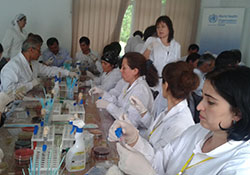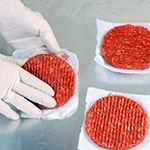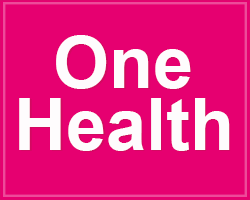Food safety
Ingestion and handling of contaminated food causes significant illness and death worldwide. Across the WHO European Region, foodborne diseases are very common, even in the most developed countries, and represent a significant burden for public health. Outbreaks of foodborne disease are likely to also have economic implications, as they often involve commercially produced products.
Read moreTop story
 Surveillance and One Health in food production key to halting antimicrobial resistance
Surveillance and One Health in food production key to halting antimicrobial resistance
Due to the overuse of antimicrobials, drug-resistant bacteria can be found in animals and food products intended for human consumption. As a result, food has become a potential vehicle for the transmission of resistant pathogens from animals to humans.
Infographic
Download this infographicIn countries
 Strengthening food safety in Tajikistan
Strengthening food safety in Tajikistan
With WHO/Europe support, Tajikistan has increased national capacities in the prevention of foodborne disease and integrated surveillance of foodborne infections.
More country workAntimicrobial resistance
Antibiotics are used in food animals not only for treatment, but also for disease prevention and growth promotion. This has important public health consequences as resistant bacteria can be passed on from animals to humans though the food chain. WHO/Europe’s training workshops help countries strengthen their capacities to tackle antibiotic resistance from a food safety perspective.
Read moreFood safety education
Five keys to safer foodBasic measures that help consumers learn safe habits for the preparation of food.
Data and statistics
Over 200
The number of diseases that are spread through food
More data and statistics






